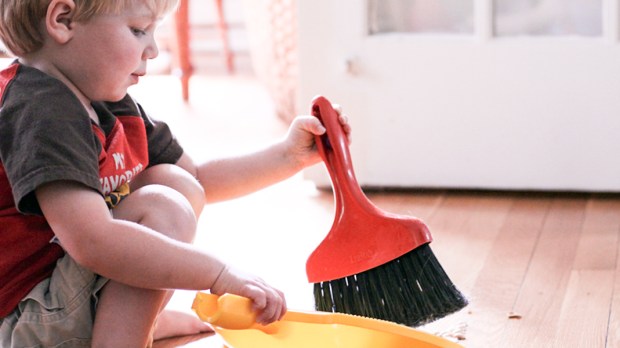Sharing tasks is not just a couple’s affair, but a family necessity. That’s why the famous “duty roster” was put in place to remind children that their mother is not Mary Poppins. Normally, at the beginning, it works, and we even wonder why we hadn’t thought of it earlier: no more arguments, everyone knows what they have to do … make dinner on Monday, sweep the floor on Tuesday, take out the garbage on Wednesday.
But, sooner or later, things typically get out of hand. Once you’ve gotten past the satisfaction of not having to chase everyone down when it’s time to set the table, you’re likely to be disillusioned by the notorious onset of chore trade-offs. “I’ll trade you my silverware chore for your cleaning out the rabbit cage, but you also have to give me your turn for video games and I’ll let you use my skateboard too if you take my turn for the garbage.”
Turning effort into a good habit
What gives meaning to true service? Its content — doing something useful; its purpose — doing it for someone else; its intention — doing it for free without wanting or expecting anything in return. We can then hope that our organization of chores will give the children a sense of service by making these efforts part of good habits.
This is the virtue of habit: it makes things easier, easier to do, and then they become more spontaneous. Another consequence of habit is that it frees the mind. When an action is guided by habit, consciousness withdraws. One acts without thinking about it, and is then able to think about something else, which is very practical. But when the action has become a mechanical chore, without gratuitousness, done just to avoid trouble, it becomes meaningless. The work is done, but reluctantly. And we should ask ourselves whether or not our chore lists are well-founded.
Two simple words can increase the joy of service
So, how do we foster this spirit of service? Through unceasing recognition. Saying thank you means recognizing and valuing the person who did the work, applauding his or her generosity and efficiency. It means putting back into the heart of the family the purpose of the services we provide each other: “You have done good for someone, you have been useful to many.”
To give thanks always means emphasizing that there has been a gift, an act that might not have been, a free and gratuitous act. These two simple words restore and increase the joy of service.
Jeanne Larghero

Read more:
5 Chores your toddler can surprisingly do

